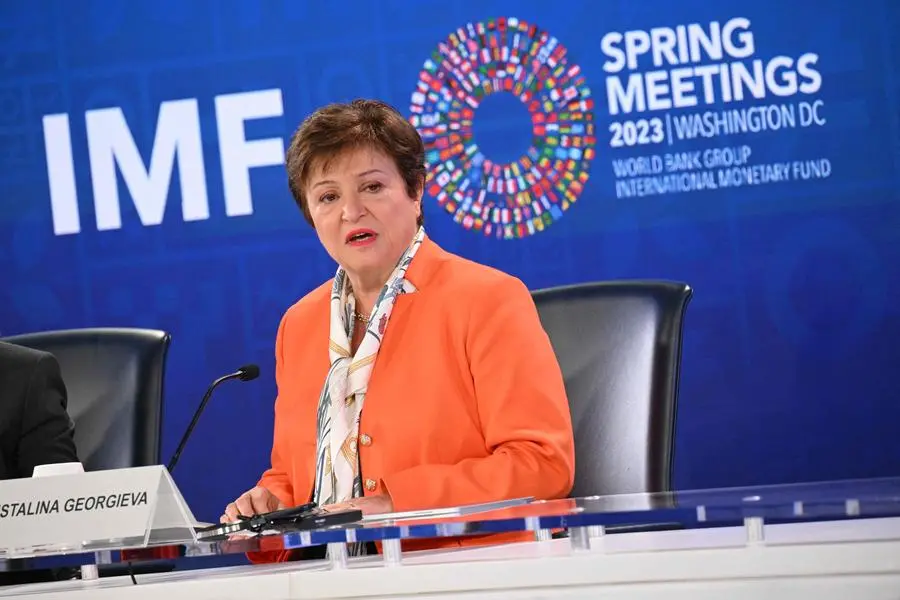PHOTO
Strong growth in the United States has helped to lift the outlook for the world economy, but more needs to be done to stem a slide in productivity, the head of the IMF said Thursday.
"Global growth is marginally stronger on account of robust activity in the United States and in many emerging markets economies," International Monetary Fund managing director Kristalina Georgieva told reporters in prepared remarks.
The US economy grew by a robust 2.5 percent last year, according to the US Commerce Department, far outstripping most other advanced economies.
"Robust household consumption and business investment, and an easing of supply chain problems helped," Georgieva added. "And inflation is going down, somewhat faster than previously expected."
She spoke just a few days before the IMF-World Bank spring meetings of world financial leaders in Washington, one of two such gatherings hosted each year by the international financial institutions.
Her remarks suggest the IMF now expects the world economy to grow faster than it predicted in January, when it forecast global growth to rise by 3.1 percent in 2024, and 3.2 percent in 2025.
"It is tempting to breathe a sigh of relief. We have avoided a global recession and a period of stagflation -- as some had predicted," Georgieva said. "But there are still plenty of things to worry about."
Among the challenges, Georgieva mentioned rising geopolitical tension, which, she said, is increasing the risks of fragmentation of the global economy.
She also highlighted the challenges of growing public debt and a "broad-based slowdown in productivity."
Because of this, the IMF expects growth to remain at just above three percent over the medium term -- below its historical average.
To help the global economy to heal and fix the productivity challenge, Georgieva laid out a series of steps to bring global inflation and public debt back down to sustainable levels, and also called for steps to eliminate "constraints to economic activity" and boost productivity.
"In short, if there is a market failure that is being addressed -- such as accelerating innovation to address the existential threat of climate change -- there is a case for government intervention, including through industrial policy," she said.
"If there is no market failure, there is a need for caution," she added.





















